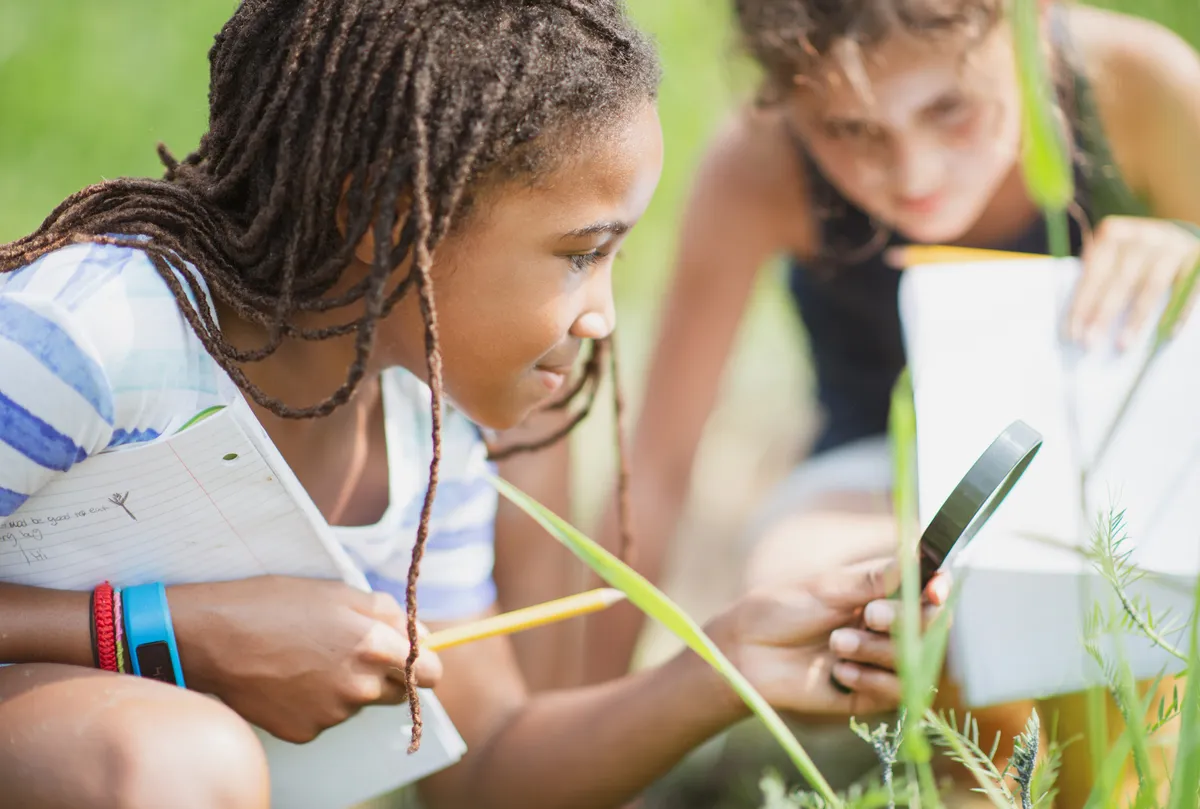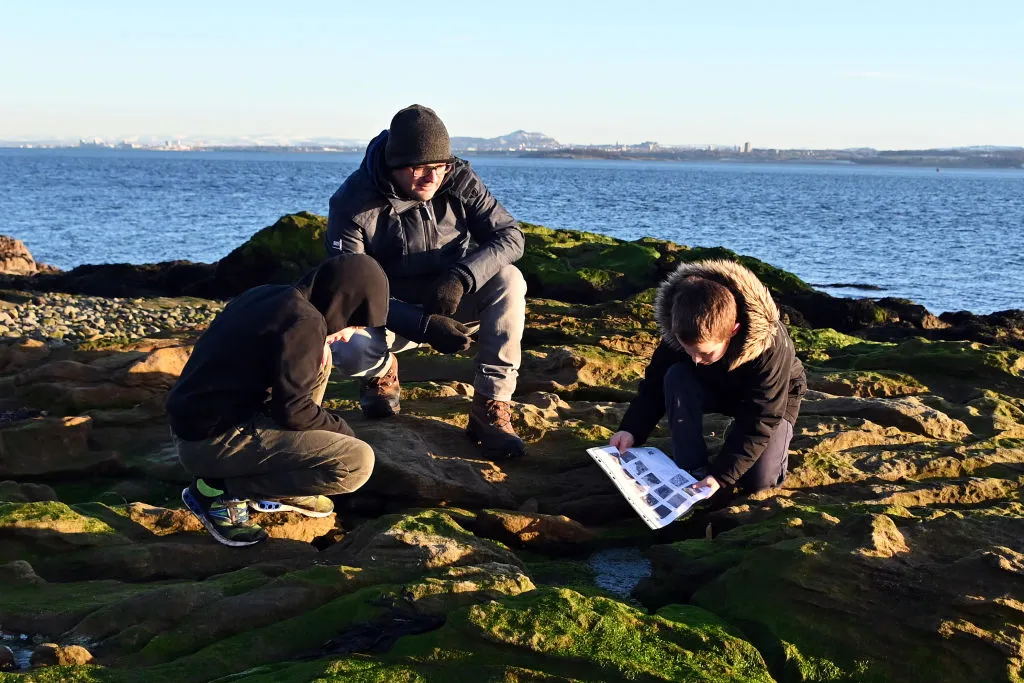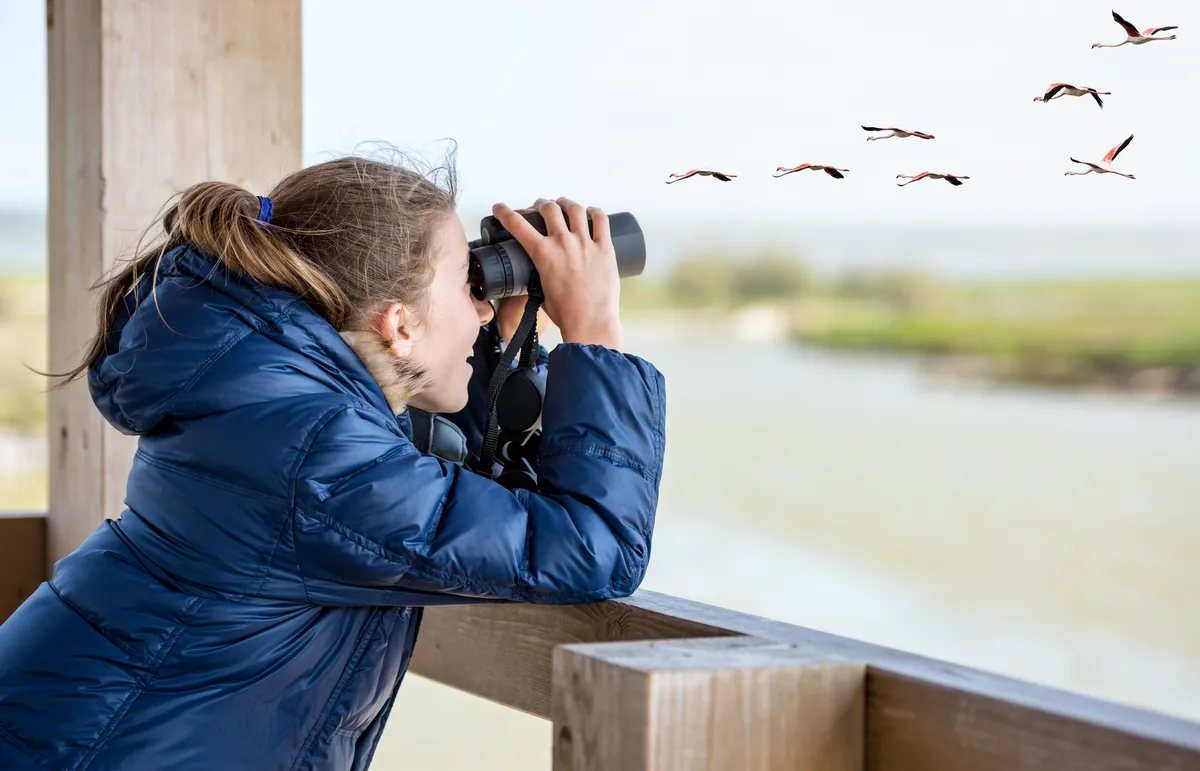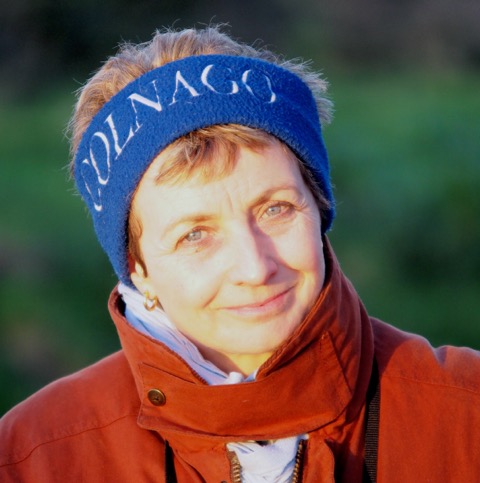While looking for a recording of the dawn chorus in the BBC Natural History Unit sound archives a few years ago, I found an entry from the 1960s, recorded in central England. As I grew up in Stoke- on-Trent, I was curious. I clamped on the headphones and, immediately, I was back in my childhood garden with a surround- sound of birdsong.But something had changed. Unlike the chorus of today, this recording was dominated by the insistent, rhythmic purring of a turtle dove – it was a painful reminder of what was once so familiar.
A flood of other memories came back – the bird table covered with starlings and my mother trying to shoo them off, “to let the little birds have a go”; a bush so vibrant with the colour and movement of butterflies that I was mesmerised; and a sharp image of my dad stopping his gardening to identify a cuckoo nearby (he always liked the letters in The Times that record people’s first sightings of the bird every year).
Connecting children with nature
Roll on 50 years and the world has changed. According to the 2016 State of Nature report, the UK is one of the most nature-depleted countries in the world. We now live in an impoverished land where hedgehogs, butterflies, bees, snakes, farmland birds and wildflowers are rarities, not common fellow travellers.
In 2018, WWF presented the findings of 59 scientists from across the world. The startling conclusion is that, in my lifetime, the world has lost 60 per cent of mammal, bird, fish and reptile populations. In just the briefest blink of an evolutionary eye, we are systematically destroying the life that exists alongside us on this astonishing planet.
The knock-on effects of this thinning out are that many young people today have little contact with, or knowledge of, once-common wildlife. Even back in 2008, Sir David Attenborough expressed dismay at the lack of knowledge about nature revealed by a poll of 700 children between the ages of nine and 11.

It was BBC Wildlife that conducted the survey, and it showed that only half of the children knew what a blue tit or bluebell looked like, and less than a third could identify a frog.“The wild world is becoming so remote to children that they miss out,” Sir David said. “And an interest in the natural world doesn’t grow as it should. Nobody is going to protect the natural world unless they understand it.”In the time since the survey took place, we have lost even more wildlife. Most primary schools do try to include some nature study in their busy days, and there is growing interest in young children studying outdoors rather than in a classroom – forest and beach schools bear testament to this. The Government has also set aside £10 million for the development of nature-friendly playgrounds and trips to natural spaces, aimed at primary schools in disadvantaged areas of England.
All this is welcome for young children, although, at the moment, the scale and outreach of these enterprises is small and expensive. As children progress through to secondary school, however, there is a yawning gap. Adolescents become even more disconnected from nature, spend less time outdoors, and most never return to it.
So, what more can be done? Since most children go to school, we could put nature at the heart of the education system, from primary through to A level. We can make studying the natural world as much a part of school life as maths and English, establishing it as a foundational subject. As the knowledge gap is at secondary level, I proposed a GCSE in natural history.
This GCSE would be holistic and, alongside the scientific, would acknowledge the contribution nature makes, and has always made, to our cultural and spiritual lives. The natural world has provided writers, poets, artists and musicians with inspiration through colour, form, sound, movement, metaphor and simile for countless generations.

Timeline of a natural history GCSE: from idea to formal announcement
2011: “What about a GCSE in natural history?” When Mary Colwell wonders aloud during a conversation with Tony Juniper, he is an instant convert. Later, he writes in The Guardian: “It would help towards rebuilding our collective awareness that we are not the only species on Earth.”
2017: Mary launches a UK Government petition calling for the GCSE. It reaches 10,718 signatures, but is pulled early due to the general election.
2018: In September, the People’s Manifesto for Wildlife, spearheaded by Chris Packham, asks for nature to be put back at the heart of education. Then, in November, Mary and Green Party MP Caroline Lucas visit Michael Gove, Secretary of State for Environment, Food and Rural Affairs (Defra), to talk about the idea for a new natural history GCSE. He is enthusiastic.
2019: OCR exam board’s research and development team meet with Mary to discuss how to make her vision for the new GCSE a reality.
2020: OCR conducts a public consultation into the planned GCSE and receives more than 2,000 responses. In October, OCR sends the resulting proposal to the Department for Education, for deliberation.
2022: A new natural history GCSE is announced in April, by Education Secretary, Nadhim Zahawi, as part of the Department for Education’s ‘Sustainability & Climate Change Strategy’.
Additional benefits of a natural history GCSE
There is another aspect that is just as vital as practical involvement in the natural world. Mental health issues in young people, such as anxiety and depression, are intolerably high. In 2018, the charity Action for Children reported that a third of 15- to 18-year-olds are affected. But there is much evidence of a positive link between access to nature and a person’s mental and physical health.
A GCSE in natural history would get students outside, immersing them in the joys and challenges of nature. It would provide an understanding of why the natural world is vital to our emotional and physical well-being.
This type of education would also contribute to the economy. A 2018 report by the House of Commons on the science, technology, engineering and mathematics (STEM) skills required by the workplace stated: ‘STEM skills are crucial for the UK’s productivity, and a shortage of STEM skills in the workforce is one of our key economic problems. The future workforce relies on many more children and young people being encouraged to take STEM subjects and enter STEM careers.’
What's the difference between natural history and biology?
A way to develop these skills is through practical science, which can easily be done outside as well as indoors. Studying nature outdoors develops key aspects of STEM skills, as it requires creativity, adaptability and resilience, as well as the ability to deal with ‘messy data’ that doesn’t fit the expected patterns studied in a laboratory.
There are constantly changing parameters in the natural world, such as seasons, tides, weather patterns and behaviour of species. To be an accomplished student of the natural world is to be a quick-thinking problem solver, intellectually curious, practical and flexible.

These STEM skills are not being nurtured as they should be in current syllabuses. In recent years, there has been a decrease in the amount of time biology students spend in the field and in the distance they travel to study locations. The Field Studies Council reports a lack of practical skills in young people, and expresses concern that students are concentrating more on demonstrating concepts than doing outdoor science.For some, the fieldwork that forms part of A level biology is the only time they will do practical, outdoor work throughout their whole formal science education. We are producing children who live in their heads, and the connection between the outdoors and what is considered to be ‘real life’ has been seriously weakened.Biology, of course, is not the same as natural history. Biology studies how life works; natural history is that life. They are related but separate subjects, mutually supportive but able to stand alone, and a GCSE in natural history will require more outdoor study than biology does.

Putting forward the idea of a natural history GCSE
I put all of these points to the then-Secretary of State Michael Gove in a meeting with MP Caroline Lucas, who had contacted me with an interest in helping take my proposal for a natural history GCSE forward. Though I first came up with the idea in 2011, it took the involvement of an MP to push it into the corridors of power. Gove was helpful and demonstrated at the meeting that he had read the briefing documents we sent.In a follow-up letter, he acknowledged that “the levels of practical science work in schools, notably the levels of fieldwork in comparison to lab-based activities, have diminished”. And, as expected, he appreciates the contribution nature makes to developing healthy, well-rounded adults: “I particularly value the aspect of your proposal which recognises the health and well-being benefits that children can derive from engaging in the outdoor activities and the natural world,” he said, in the same letter.At the meeting, he also threw light on the mechanism for setting up a GCSE. It is not, as might be imagined, in the gift of government, but in the hands of exam boards. So, he put us in touch with the people who decide how it works.
Should natural history be a separate GCSE?
Naturally, there are people who think such a GCSE is not a good idea, and that the study of nature would be better served if nature-specific content were to be made a part of many existing academic subjects, rather than as a course in its own right, to which only a minority of children might have access.
This may well be true, but are the two things mutually exclusive? The study of the natural world is a profoundly important subject in its own right and must take a central place in our school life. It should be included wherever it is relevant, but it should not be considered a bit-player, seconded to a few modules in other subjects.
There is also a school of thought that says a GCSE in natural history would be seen as a ‘soft’ subject not recognised as sufficiently rigorous by universities and employers. When Lucas and I put this to a senior civil servant working for the Department for Education, he insisted that it would be the job of the exam boards to make sure that it would stand the test of academic scrutiny.
He also told us that, if this bid is successful, training would be provided to teachers, and Key Stage 3 (pupils aged between 11 and 14) would be geared up to introduce the subject, prior to the GCSE proper starting, so that the study of nature would be filtered through school.
In a separate feature for BBC Wildlife in April 2021, Ben Hoare examined some of the criticisms for the then-proposed GCSE:
A common criticism of the natural history GCSE is that it involves specialising too early. The ‘G’ in GCSE stands for ‘General’, after all. Might teenagers who pick the course risk missing out on other aspects of biology, and emerge with gaps in their scientific understanding? Could they be left poorly prepared for A Levels?
Tim Oates, group director of assessment, research and development at OCR, counters that the course has, from the outset, been designed as an option, which students can choose alongside one or more other core sciences, or Combined Science. “I’m pretty relaxed about what it will be studied with,” he says, adding that a strength of the education system in the UK is that it is more flexible than in many comparable countries.
There have also been suggestions that students may be at a disadvantage when applying to university or college, or when looking for a job. In a competitive market, will a natural history GCSE be taken seriously?
“University biology departments are very keen,” Tim argues. “They say to us: ‘We’ve got people coming up who can understand genetics but have never looked at whole organisms.’ The practical zoology and botany, so important to biology in schools 50 years ago, have inadvertently been squeezed out.”

School biology has turned into an abstract subject, Tim says. “Biology has become biochemistry. Familiarity with plants and animals, and the environment in which they live, the processes they are part of, the pressures they face... none of this features significantly in schools at the moment.” Outside academia, the Field Studies Council is one of the few organisations still providing this style of learning.But the biggest hurdle standing in the way of a natural history GCSE is who will teach it. Surely, people say, it will end up as the preserve of well-funded private schools with small class sizes, or those with extensive grounds in rural areas.Even if a nature-mad teacher in an urban state school or college is itching to get involved, their headteacher, confronted with timetabling constraints, shrinking budgets and a system that prioritises exam results, is bound to need much more persuading.

The sceptics include nature-writing sensation and environmental campaigner Dara McAnulty, who is currently studying for his A Levels in Northern Ireland. He wrote on Twitter: “There’s no way on Earth my school would/could offer it. The exam board offering is favoured by independent/ private schools.”
Tim sounds wearily familiar with this argument, which – tongue in cheek – he sums up as: “It’s a posh GCSE, all frogs and ponds.” He stresses that his OCR exam board will provide professional development for teachers alongside the course materials. The Natural History Museum in London is offering additional resources for schools, he says, and the hope is that regional museums will join in, too.
Nevertheless, there is a lingering concern, voiced frequently during the public consultation into the GCSE, that take-up might be disappointing, particularly in cities and with students from deprived sections of society. Critics say it will appeal to those already fascinated by wildlife (probably with equally enthusiastic parents), rather than – as intended – help many more young people to reconnect with the natural world.
Worse, by gifting an extra qualification to privileged youngsters who hope one day to pursue a career in ecology or conservation, it could perpetuate the woeful lack of diversity in these fields, instead of nurturing opportunity. Despite many laudable recruitment initiatives, conservation remains stubbornly ‘pale and male’, one of the least diverse sectors in Britain. Mya-Rose Craig (‘Birdgirl’) is among those who claims the new GCSE will “increase elitism”.
Mary, though, has no time for naysayers or negativity. The danger to the planet from what American writer Richard Louv famously dubbed “nature-deficit disorder” – a shocking decline in nature connectedness, among all age groups but especially teens – is simply too severe, she says. Like other fervent champions of a GCSE in natural history, Mary sees this as an existential battle. The GCSE is just the start: there are plans for an A Level, too.
Action for Conservation specialises in reaching young people in deprived areas, often from minority backgrounds. The charity’s CEO Hendrikus van Hensbergen gives the proposed GCSE a cautious thumbs- up, but adds: “The words ‘natural history’ are not going to be a big draw. ‘History’ implies you are just looking at the past. It might not engage teenagers in the inner city or depressed rural areas.”
So, what will attract them? “Well, we employ people from the communities in which we work,” Hendrikus says. “They are early-career, relatable. We support young people in designing their own environmental projects... we give them an agency, freedom to tackle their own thing. It could be creating a rap song. But it needs to speak honestly to the communities. A GCSE can be prescriptive.”
Few would dispute that something has to give; no-one is arguing for less nature in schools. However, the coronavirus pandemic has left teachers exhausted and Britain’s education system under pressure as never before. After years spent germinating, it is far from clear whether a GCSE in natural history will find fertile ground.
But still, as naturalist Amy-Jane Beer has pointed out, there are already GCSEs in Hungarian, Graphic Products, Astronomy and Biblical Hebrew. “Not to disparage the worth in any of these,” she wrote in British Wildlife magazine, “but if they merit a qualification and the study of nature and its infinite connections doesn’t, then we should all fear for the future.”
Modern childhood is so different to that of any other generation in British history. In 2016, research showed three-quarters of children in the UK spent less time outside than prisoners, and that more than one in nine children in England had not visited a park, forest, beach or any other natural environment in 12 months.
Young people are losing the vocabulary and skills to engage with the natural world – at exactly the time it is being extinguished so rapidly. We owe it to our children to teach them about the riches of life on Earth.
Main image: Students outside. © Harry Tennant
